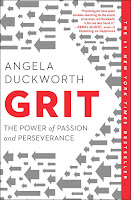An Unusual Perspective and Strategy on Wordle

You must have heard of (and maybe for some, forgotten about) Wordle . This five-letter word guessing game took the world by storm earlier this year. Despite losing some of its shine by now, many are still considering it their daily routine. I know people who eagerly anticipate the stroke of midnight so they can be the first ones to crack the daily puzzle. This New York Times darling actually reminds me of the long running TV show Wheel of Fortune especially its bonus round. Pat Sajak's reciting of the gimme letters R, S, T, L, N, E still seems like a memory from yesterday. If I seem to know too much about this show, this is because I watch it on Netflix when feeling the need for an extra challenge in life. This post was written to commemorate the 100th anniversary of my playing the game. For full disclosure, I do not play every day especially when the schedule gets tough. My record is not too shabby however, as I guess the...







